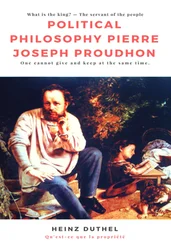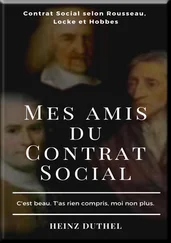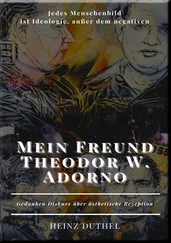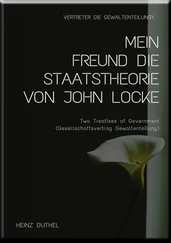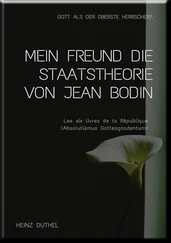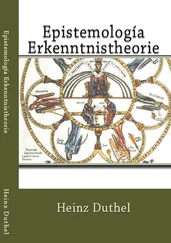1 ...6 7 8 10 11 12 ...23 I will draw on Marx’s Economic and Philosophical Manuscripts of 1844 [Marx, 1844 #322] to outline his theory of alienation and explain how it is relevant to my study. For Marx, alienation is a result of an inherent contradiction between capitalism’s need to increase profitability, and the intrinsic needs of the individual for pleasure and self-development.
What then constitutes alienation of labour?
First, the fact that labour is external to the worker, i.e. it does not belong to his intrinsic nature*; that in his work, therefor, he does not affirm himself but denies himself, does not feel content but unhappy, does not develop freely his physical and mental energy, but mortifies his body and ruins his mind. The worker therefore only feels himself outside of his work, and in his work he feels outside of himself. He feels at home when he is not working and when he is working he does not feel at home. His labour is therefore not voluntary, but coerced; it is forced labour.
[Marx, 1844 #322, p 274]
(*) This is translated both as “nature” or “being” in different versions of this article. I used the Volume 3 – Collected Works.
So it is the separation between the individual’s nature and the object of labour that causes discontent and retards personal development. The elements of such alienation do relate to the context of schooling and mathematics teaching. In particular, home and work are separated – which may be translated into the diverse contexts and locations of the child’s activity. Furthermore, pupils attend school through coercion rather than voluntarily. This is of course a controversial thing to claim. Many may see children enjoying school and attending more through choice than external force or coercion. However school attendance is enforceable through the legal system – there are even now constraints on parents taking short holidays during school time. More importantly school attendance is also enforced through strong cultural expectations on individuals; a form of intrinsic coercion. Again, this model of alienation needs to be implemented and maintained in the daily life of the pupil. So, while the theory of alienation is useful, it needs elaboration on the scale of human agency. Karl Marx develops the argument thus,
The alienation of the worker in his product means not only that his labour becomes an object, an external existence, but that it exists outside him, independently, as something alien to him, and that it becomes a power on its own confronting him. It means that the whole life which he has conferred on the object confronts him as something hostile and alien.
[Marx, 1844 #322, p 272]
The language Karl Marx uses here is both analytical and rhetorical. Yet, there are distinct parallels with the learning process. That Mathematics is unpopular, and the cause of much unhappiness hardly needs stating again – yet it is clearly the case that many pupils in school (as well as individuals in society) see mathematics as difficult to understand, lacking in purpose or application and something in which they would rather not engage. The school system, tears pupils away from their environment and culture and imposes on them tasks, activities and routines which bear little relation or application to their own interests or needs. Of course I am not suggesting that schools and mathematics education have to be structured purely around children’s immediate interests and needs. This would be a deficient experience. The paradox of learning is to take people to heights where they are not now at, to see that which they can not now see. However, where the material content (the curriculum) and the presentation (the pedagogy) of mathematics in schools is explicitly divorced from pupils, and of course from teachers, who after all are the ‘workers’ in this relationship, Karl Marx’s theory of alienation helps us to see a rationale for lack of interest, motivation and engagement in school mathematics lessons.
Not everyone feels this way of course. Many pupils enjoy school mathematics and many are successful at it. While happiness, enjoyment and success do not always go hand in hand, we might expect a high correlation. Karl Marx’s theory is not an individualistic theory, but a social theory, representing the structural features of social tendencies. The significant issue is the impact such alienation has upon individuals and upon society.
An immediate consequence of the fact that man is estranged from the product of his labour, from his life activity, from his species-being is the estrangement of man from man. When man confronts himself, he confronts the other man.
[Marx, 1844 #322, p 277]
Hence, the alienation causes social divisions between those implicated in different activities in the production process. We can shift our attention from Karl Marx’s interest in commodity production, to looking at cultural production here to uncover the processes of alienation. Paul Dowling has presented one approach that I find helpful in this regard [Dowling, 1998 #391]. School mathematics he claims is a socially regulatory activity, regulating who can say and do what. In this regard, it is always hierarchical, consisting of various positions. Mathematical texts distribute individuals according to these positions. This distribution is carried out, in part by authorial voices (Dowling 1998, p 143) – those who assume dominance and authority through being the author of the discipline. An authorial voice may come through the texts used, but mathematics itself is not an activity – and class texts do nothing on their own, they require the practices of the teacher through the social organisation of the classroom, the organisation of tasks and the selection of pedagogic strategies to be effective. One way in which mathematics is constructed to alienate pupils is by its mythologisation. A mythical world, set apart from the world of the pupils is constructed within which much school mathematics takes place. Paul Dowling offers us the myth of reference, that mathematics refers to something other than mathematics (Dowling 1998, p 6), and the myth of participation, that mathematics is useful in optimizing the mundane everyday activities of pupils (Dowling 1998, p 9).
Alienation, as a social not a psychological separating strategy, has effects upon the role that mathematics education plays in social stratification. In terms of economic commodity production, Karl Marx identifies the way in which alienation affects different social classes in different ways and thus brings about not only social stratification, but also social distinctions.
The propertied class and the class of the proletariat present the same human self-estrangement. But the former class feels at ease and strengthened in this self-estrangement, it recognises estrangement as its own power and has in it the semblance of a human existence. The latter feels annihilated in estrangement; it sees in it its own powerlessness and the reality of inhuman existence.
[Marx, 1845 #689, p 36]
This is a similar phenomena to that which Pierre Bourdieu discusses in Distinction [Bourdieu, 1979: 1984 #45]. Here he argues that estrangement or a tendency to “bracket off the nature and function of the object” (p 54) is a function of social class. In applying this to social and cultural reproduction, Pierre Bourdieu sees the significant factor to be the relative importance of economic necessity (p 54). With mathematics as part of our cultural makeup, the alienation, estrangement or mythologisation of mathematics is going to evoke different responses from pupils with differing cultural backgrounds. Here then is a theoretical justification, deriving in part from Karl Marx’s theory of alienation, for the way in which mathematics education plays a part in reproduction.
Karl Marx never claimed that capitalism developed by the imposition of an organised dominant and exploiting class. What he did argue was that the capitalist class has been constructed out of human actions; action embedded in a social context. The ruling ideology then is not imposed, but is generated and developed to create a reality which in turn creates a ruling ideology. While Karl Marx has exposed the structure of domination in capitalist society, he perhaps spent less time working on the process of domination, and the role of individuals within that. In particular questions about the interaction between social base and economic superstructure were left largely unexamined and thus the way in which ideologies and consciousness are produced by the cultural and political milieu, aside from defining it as dialectical are deficient. Karl Marx’s project however was part of a developmental critical social research, and since critical research is evolving what might have been critical at the end of the 19th century might not seem so today [Harvey, 1990 #584, p 6]. One of the tasks I have set myself here is to work on the role of individuals in a system of domination, in particular through the structure of some mathematics teachers’ professional discourse.
Читать дальше




